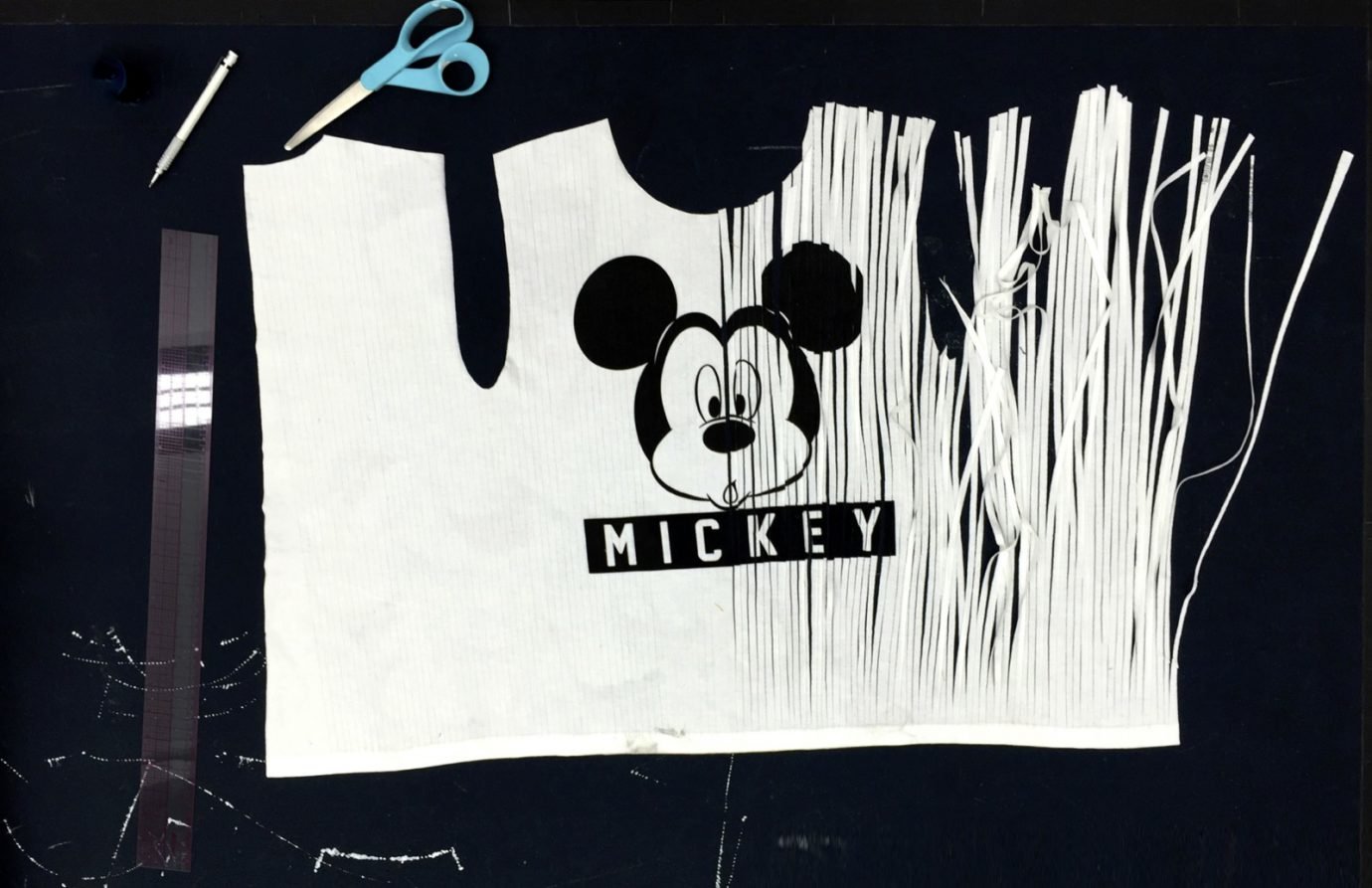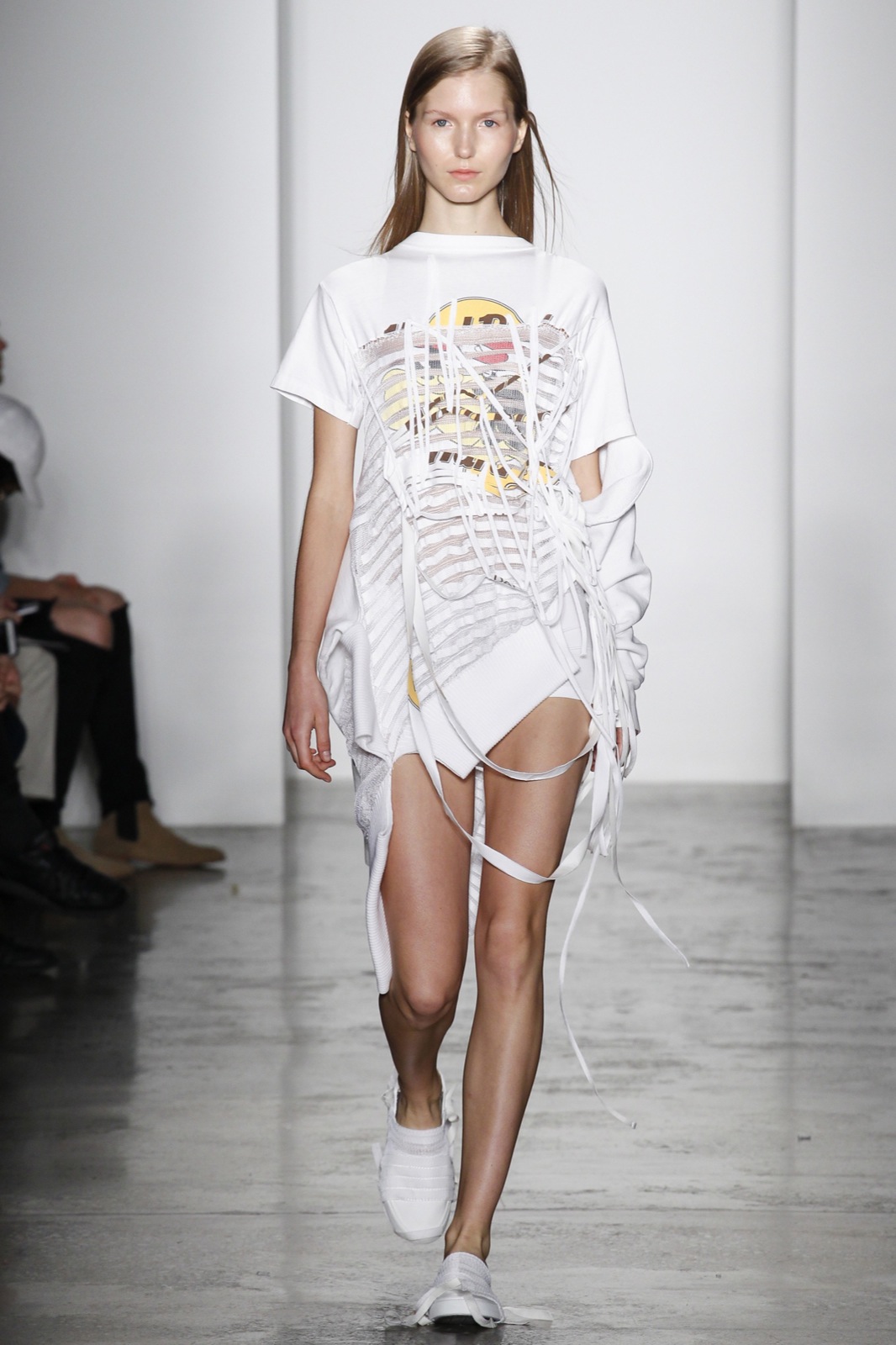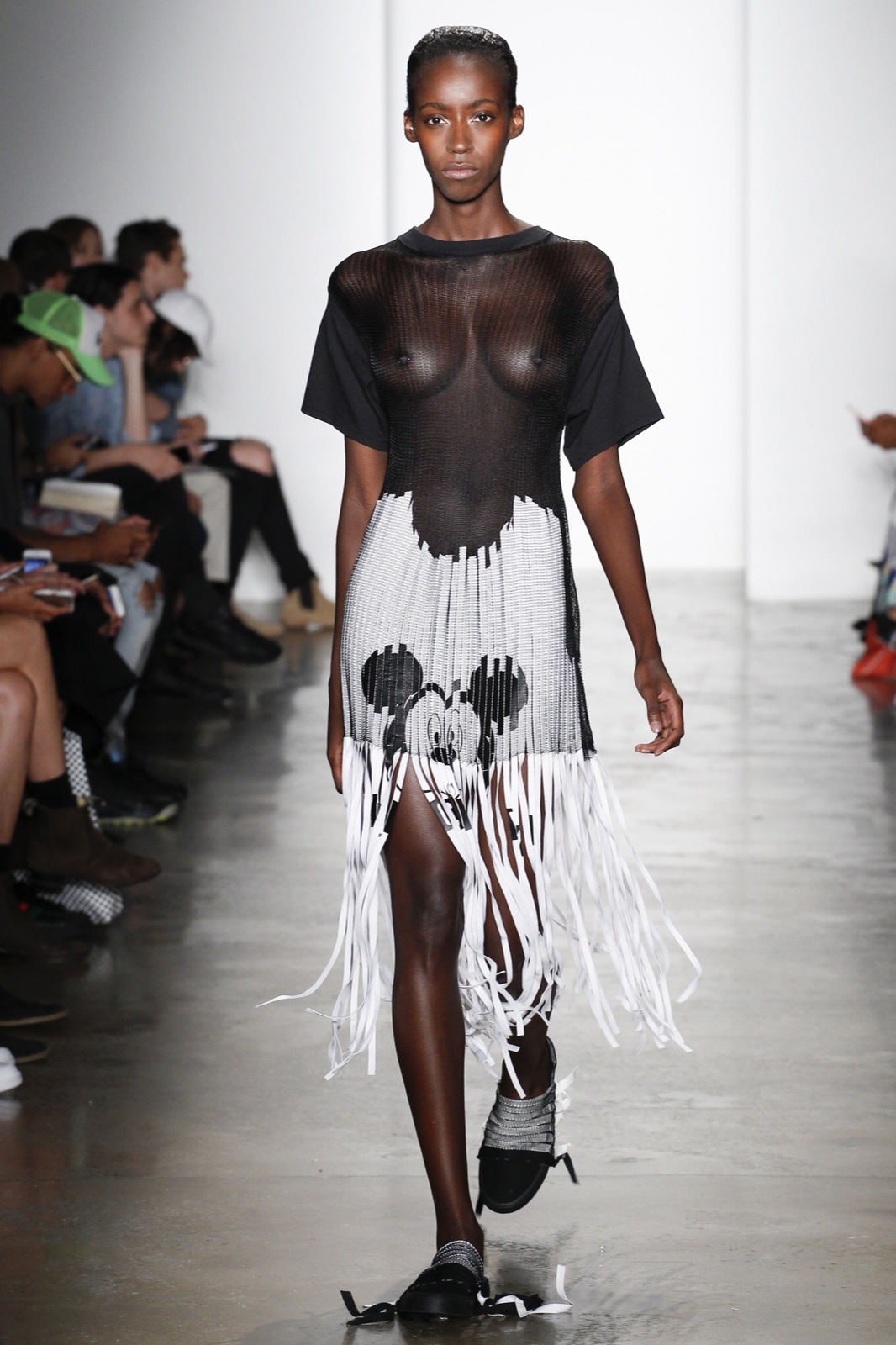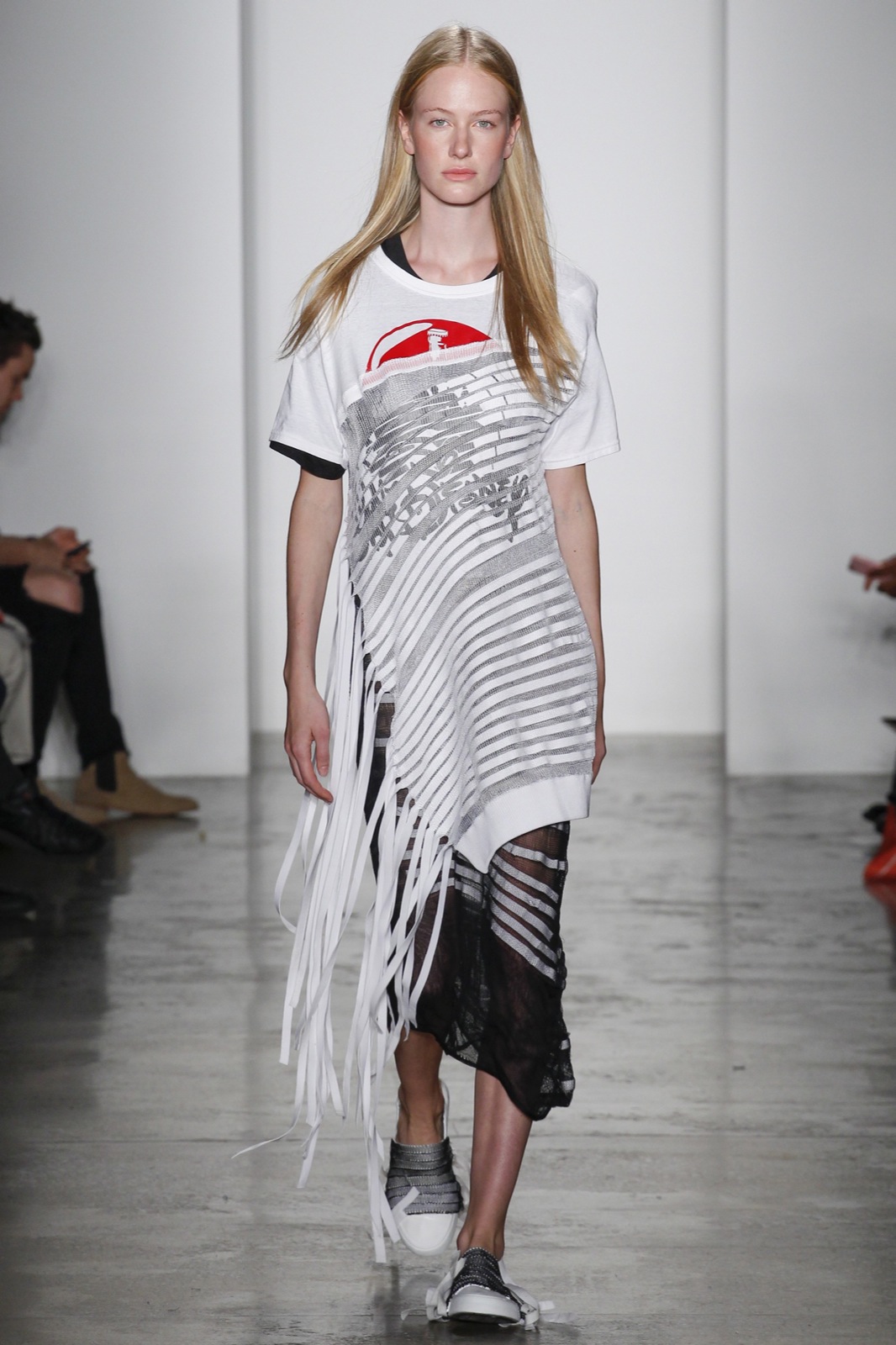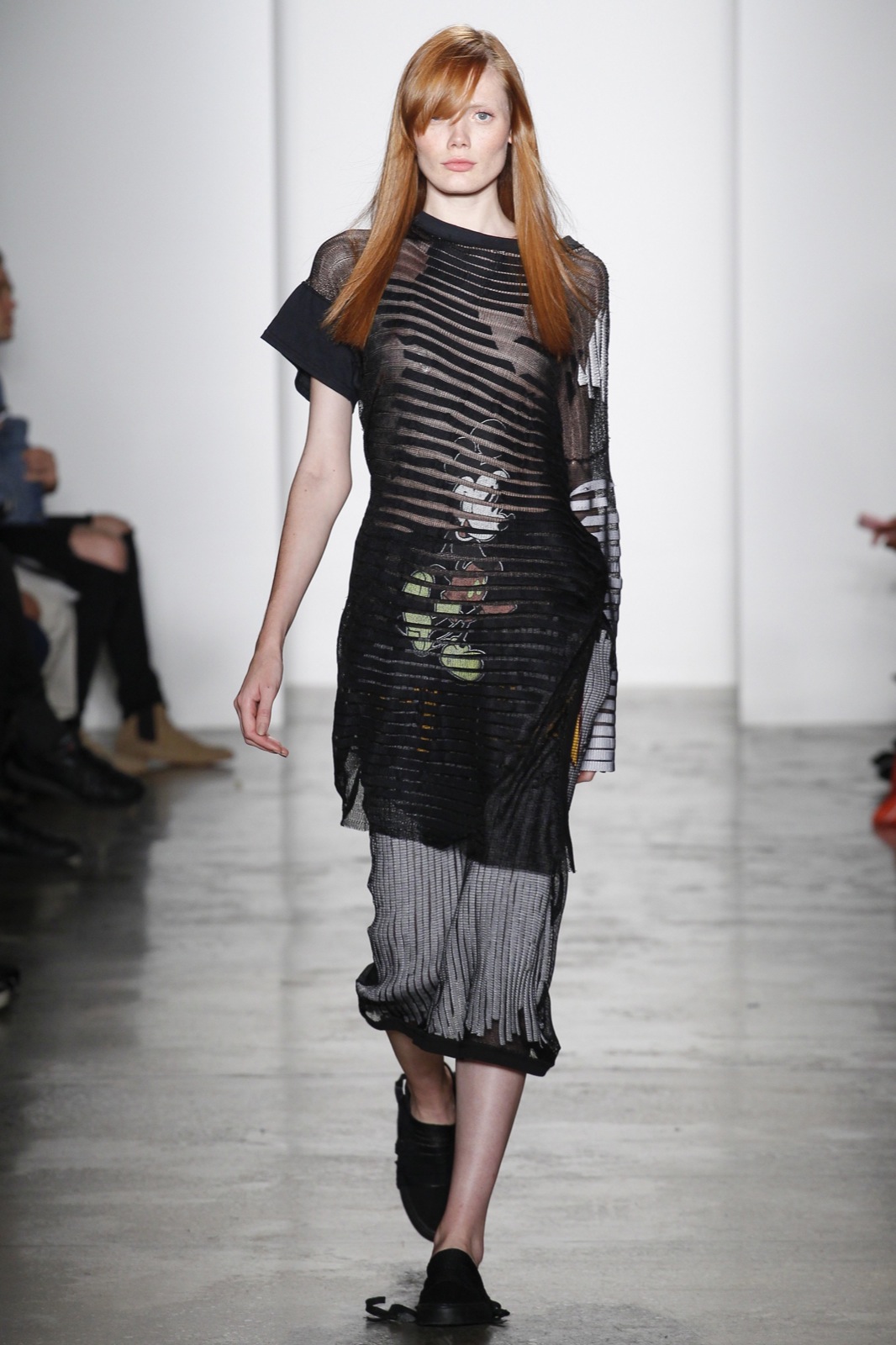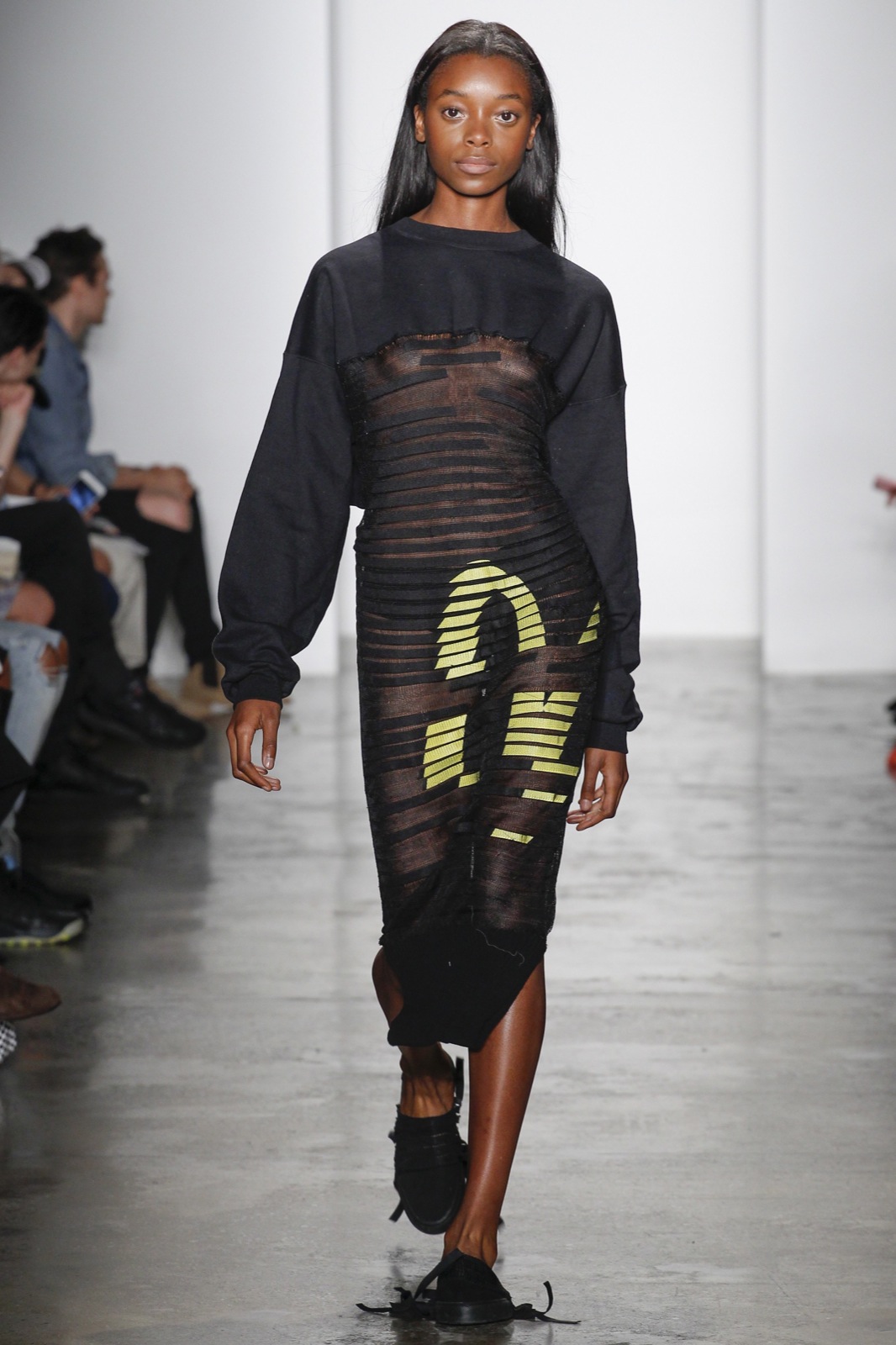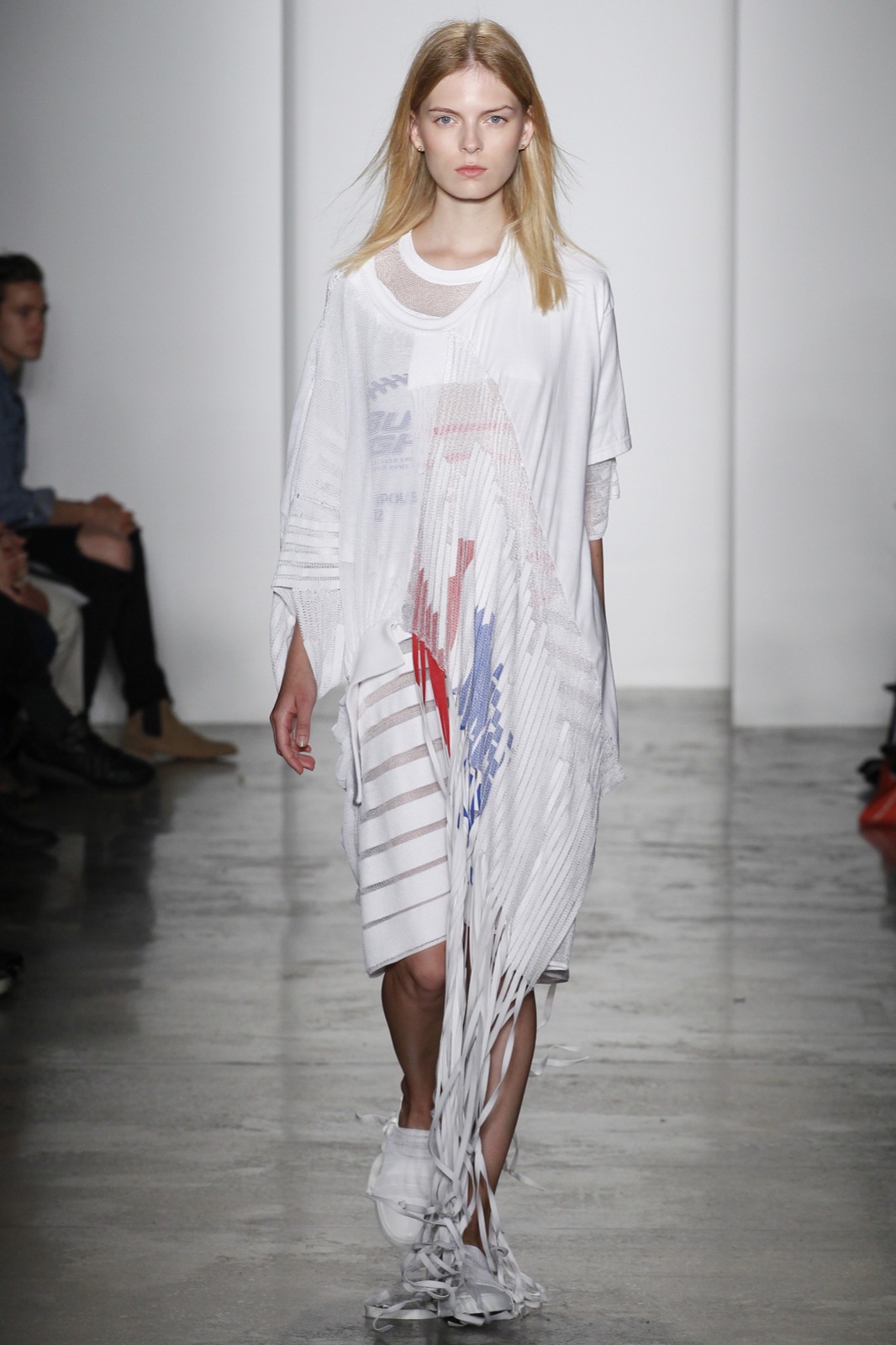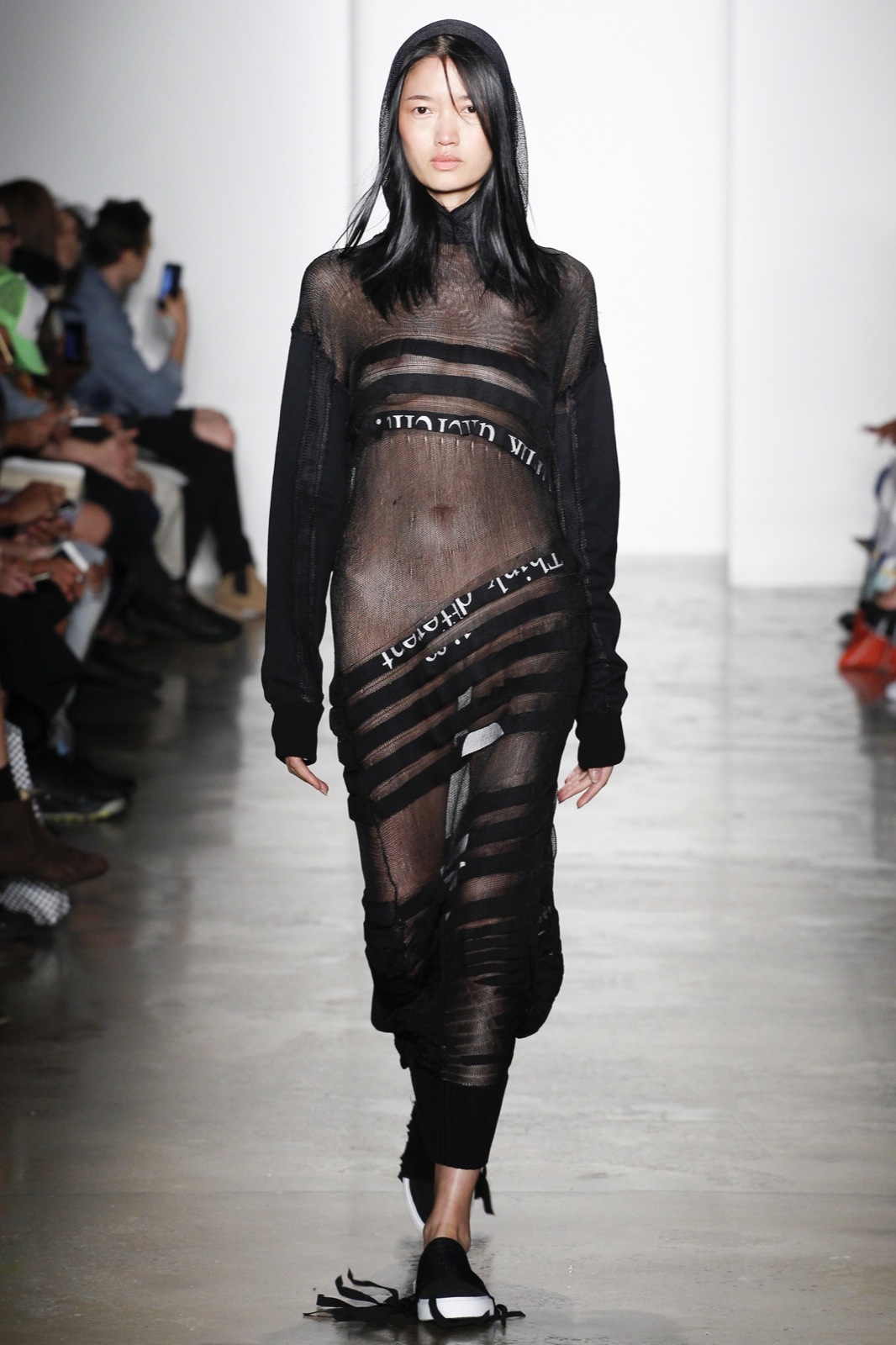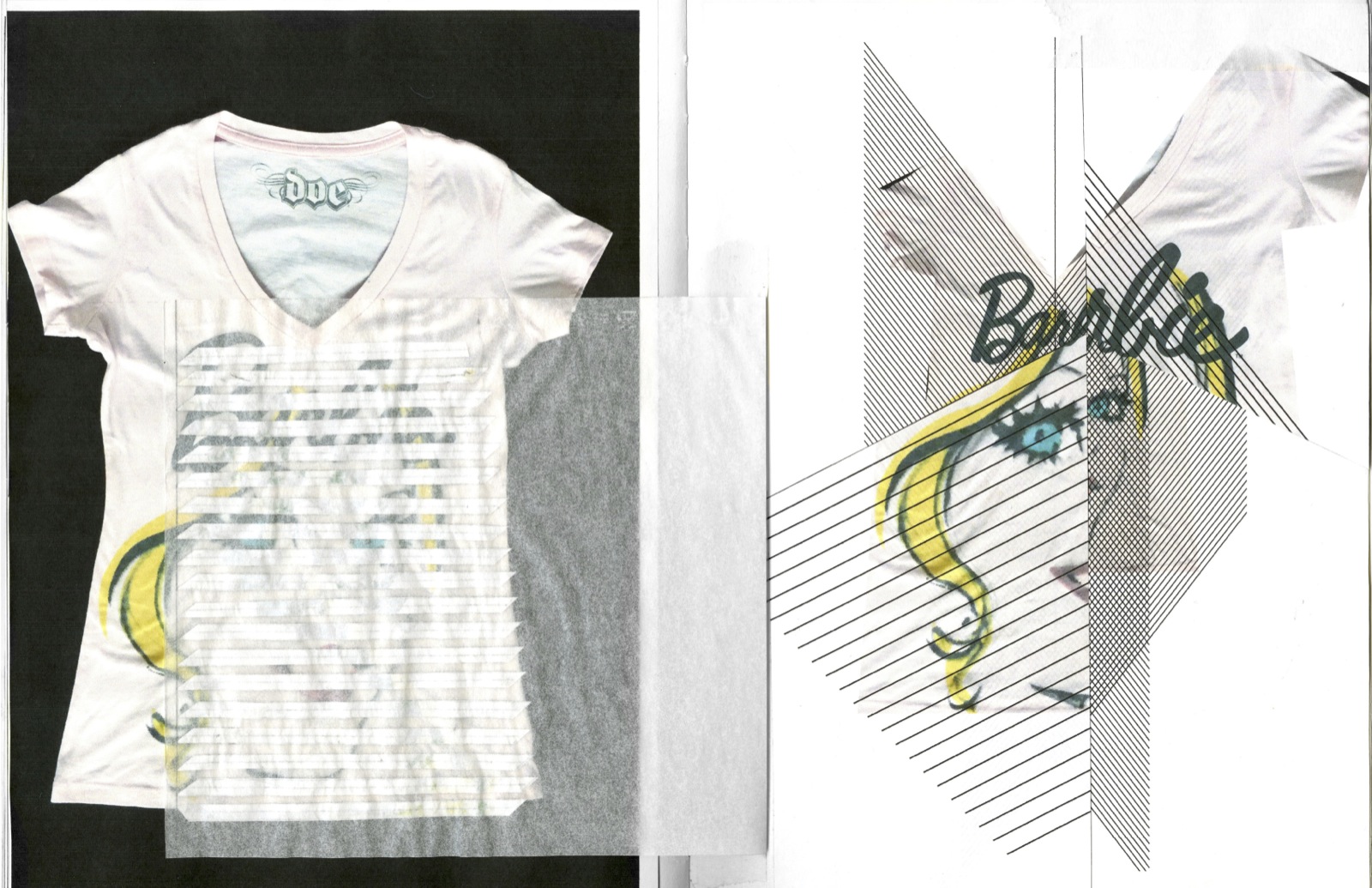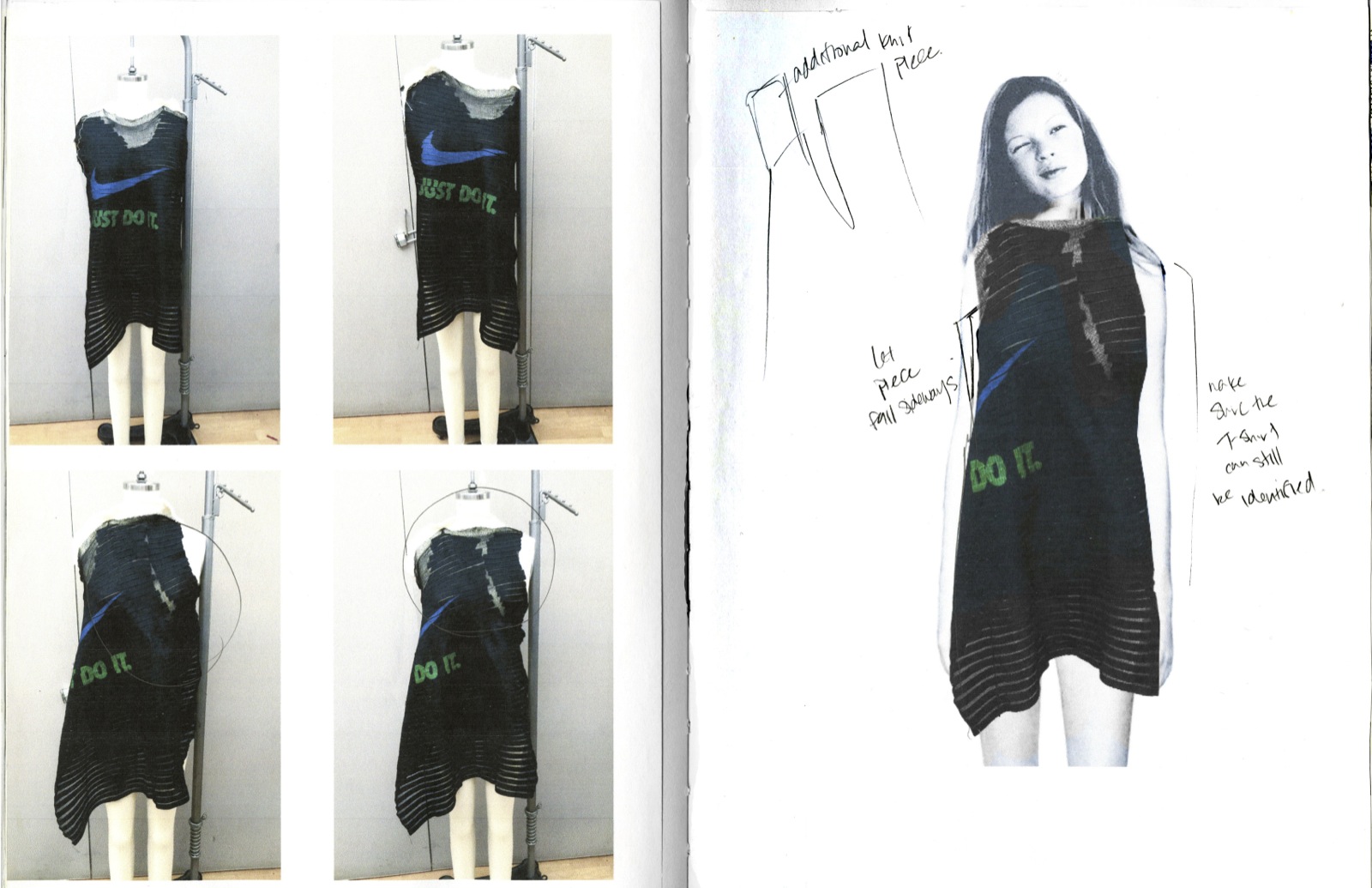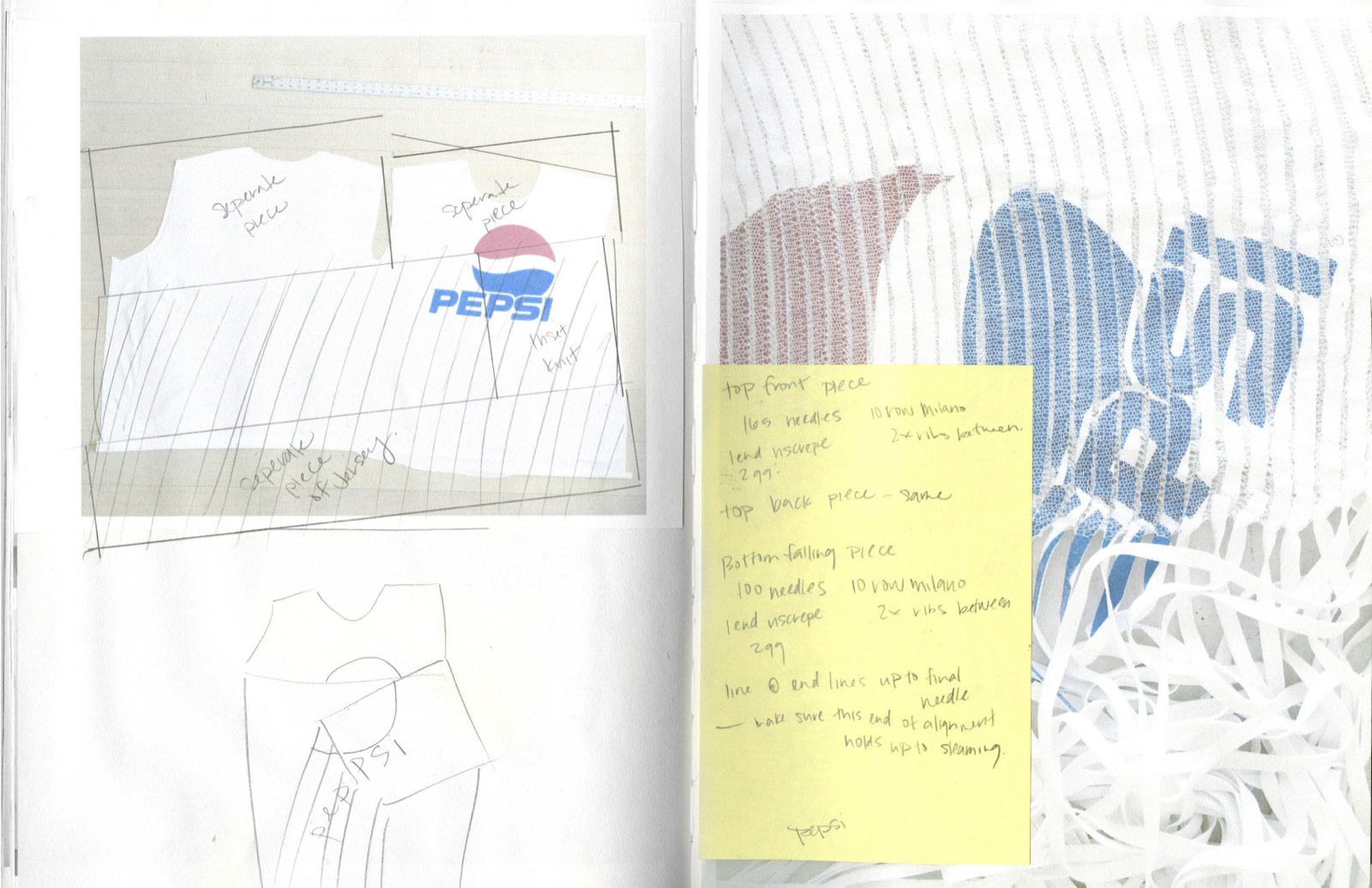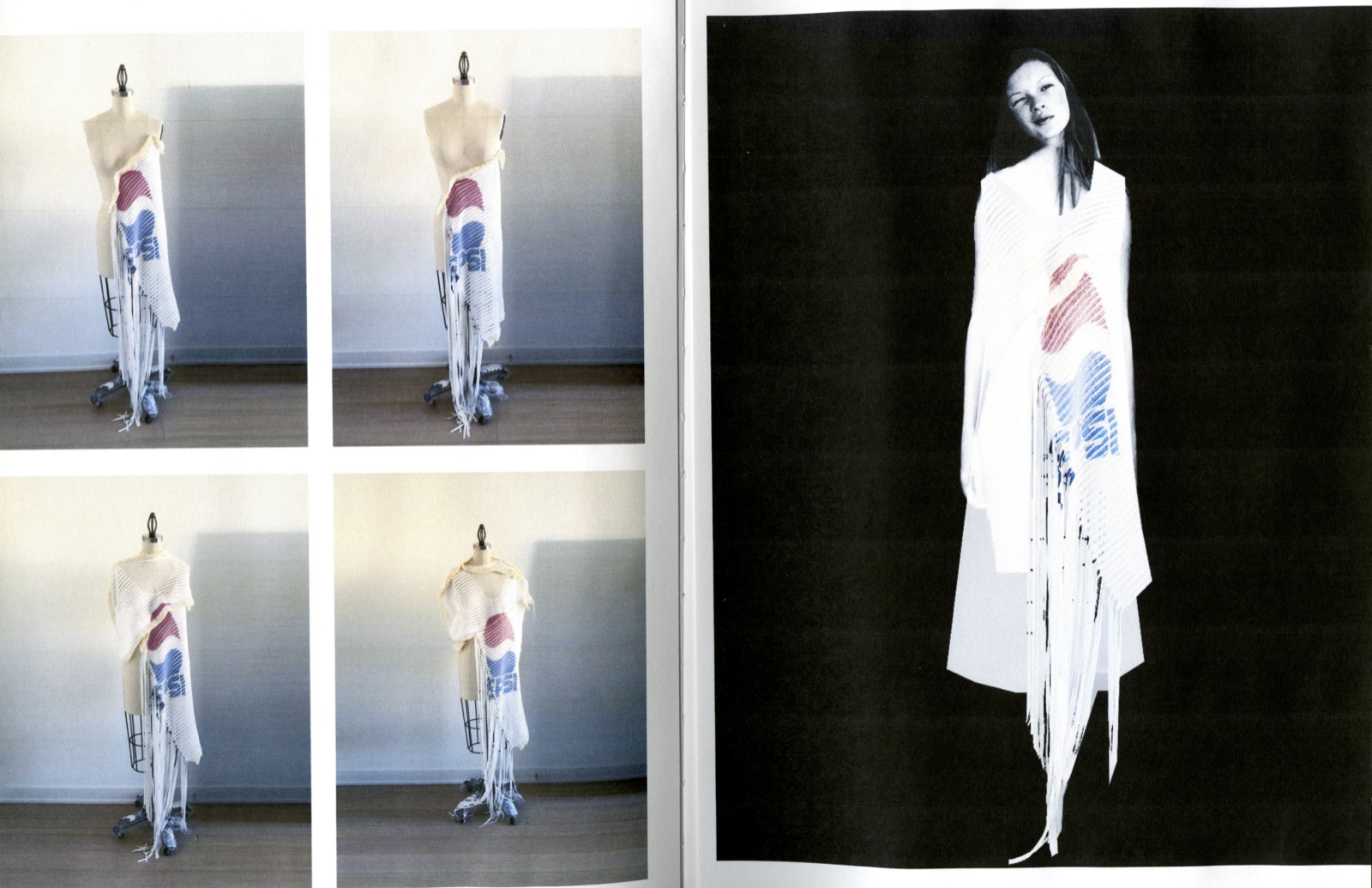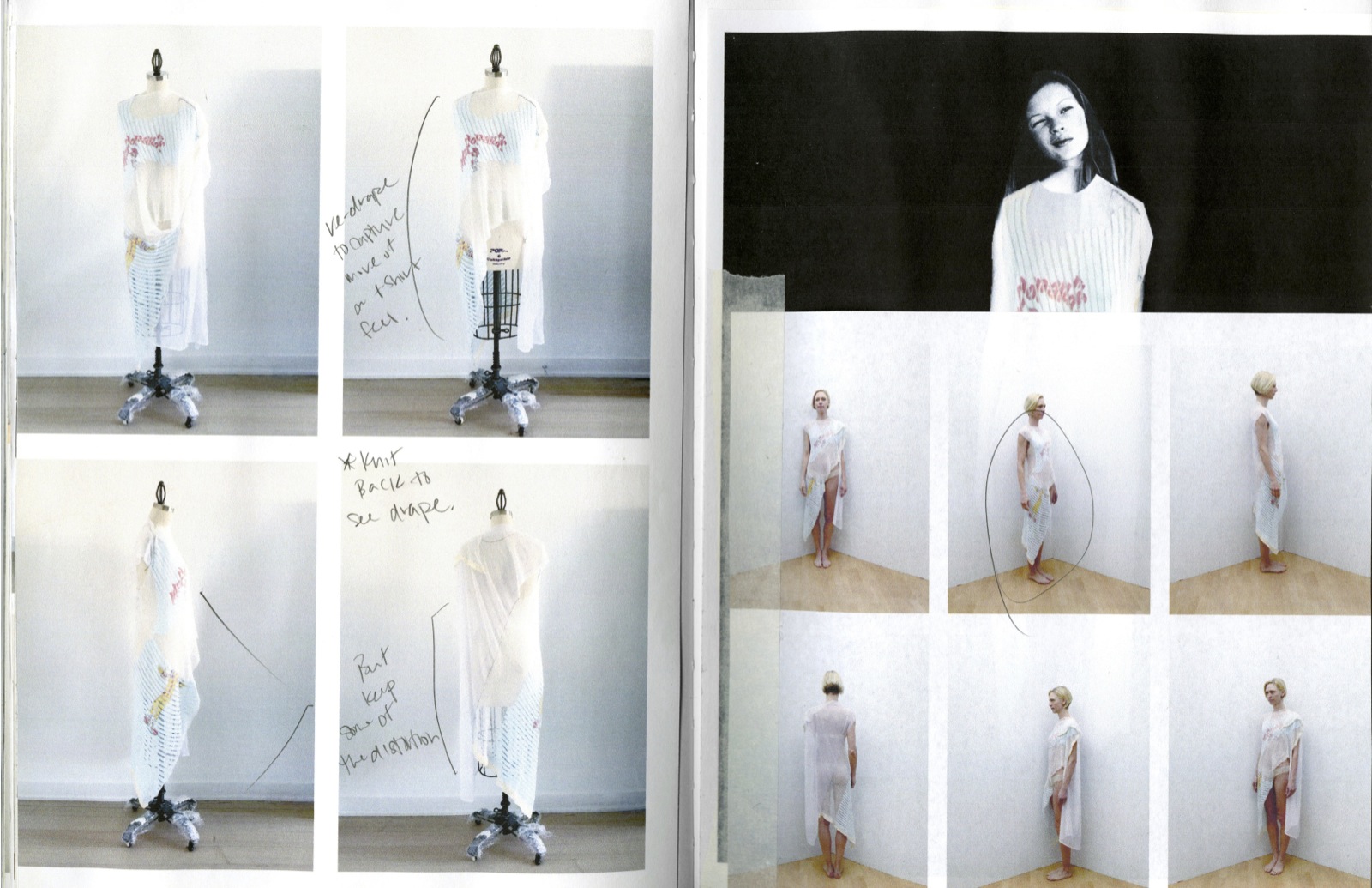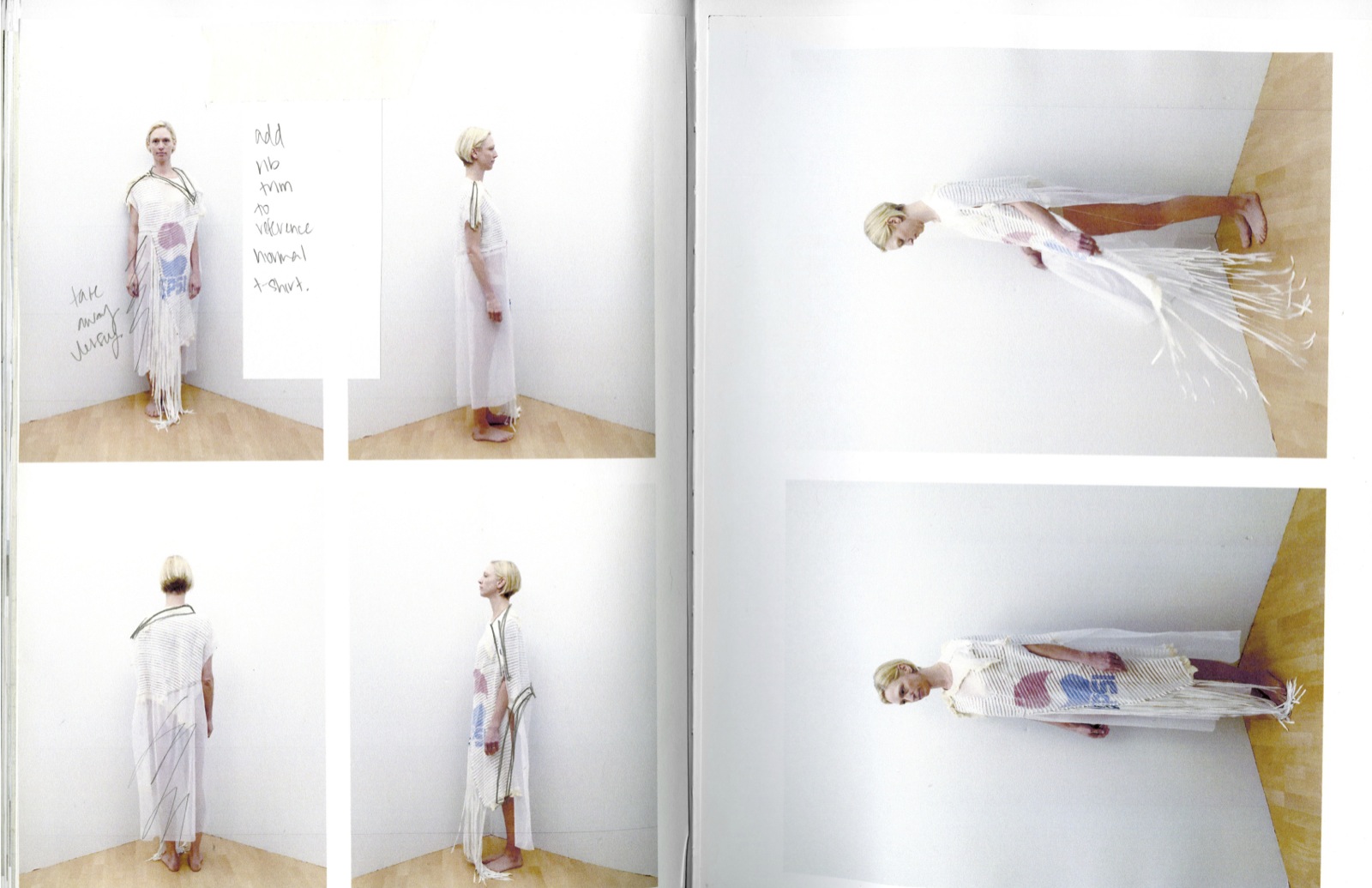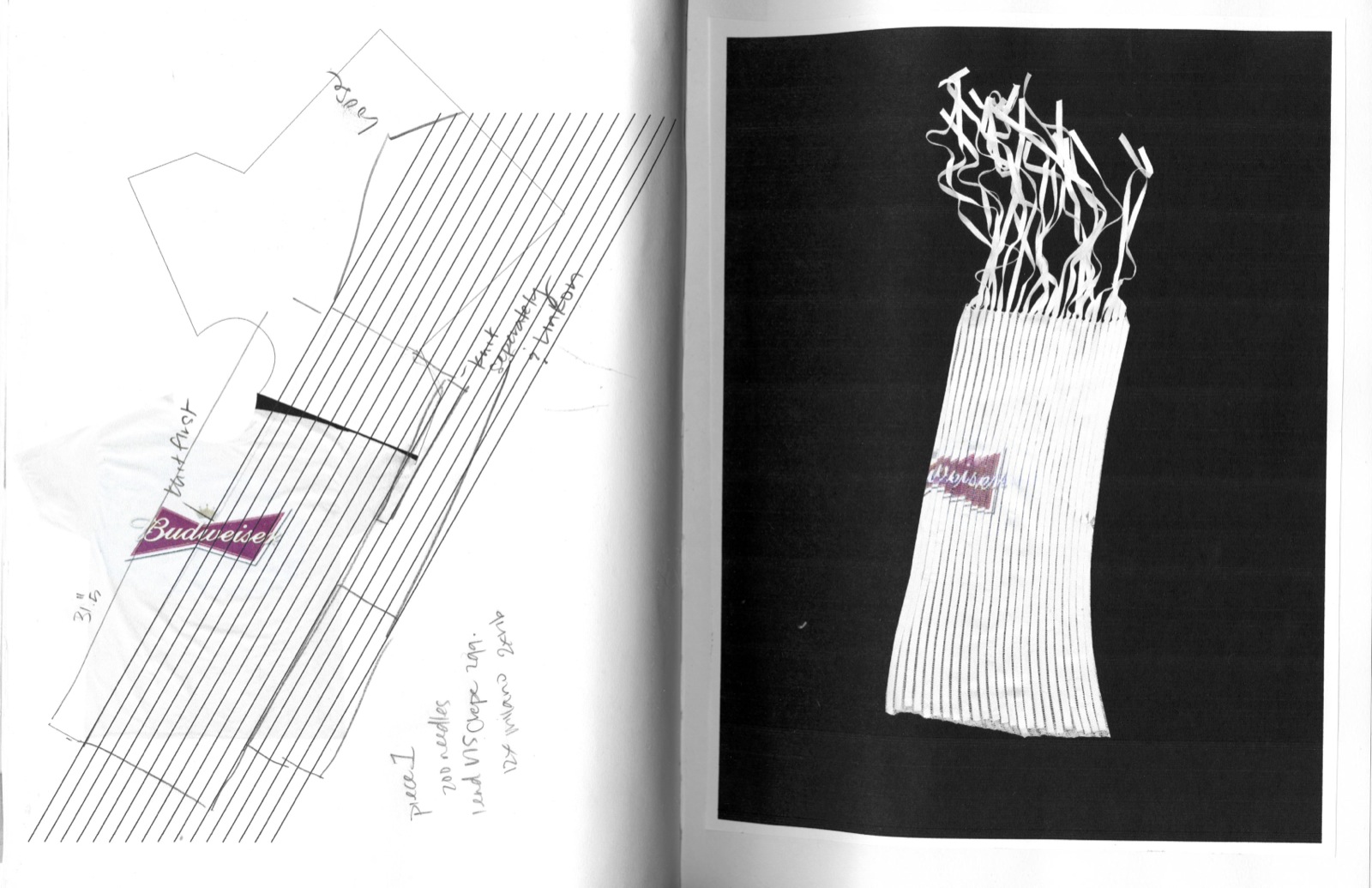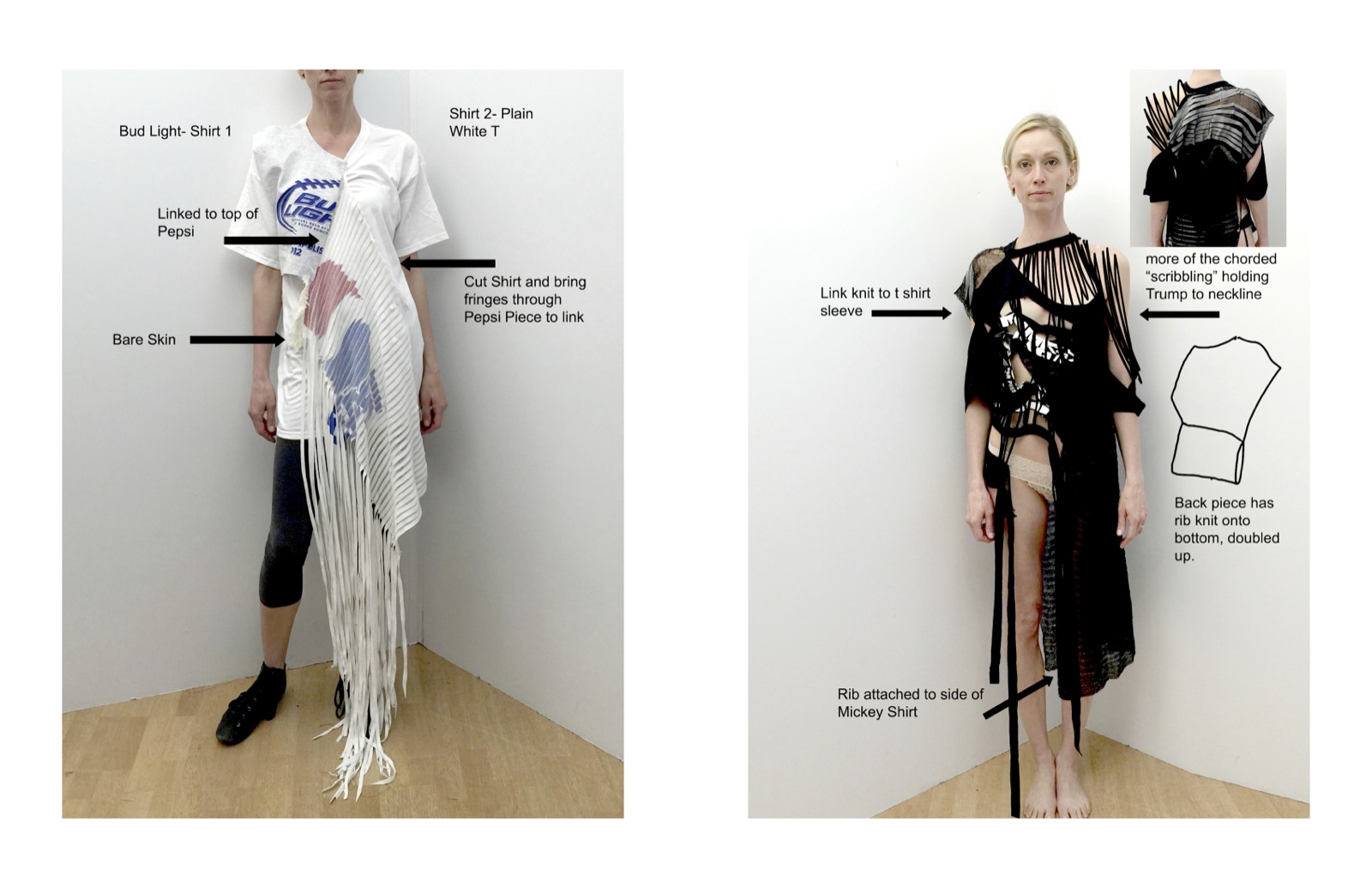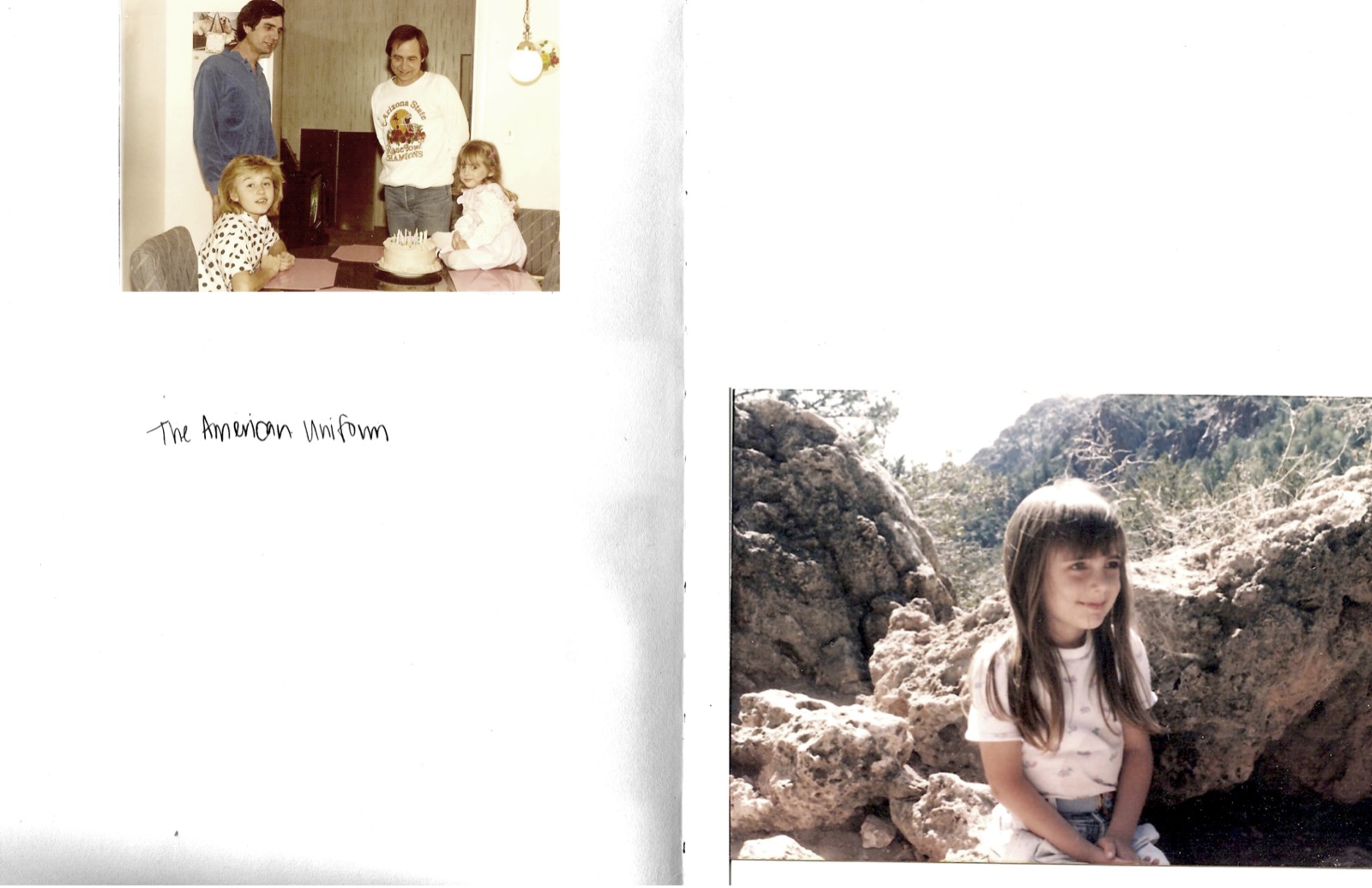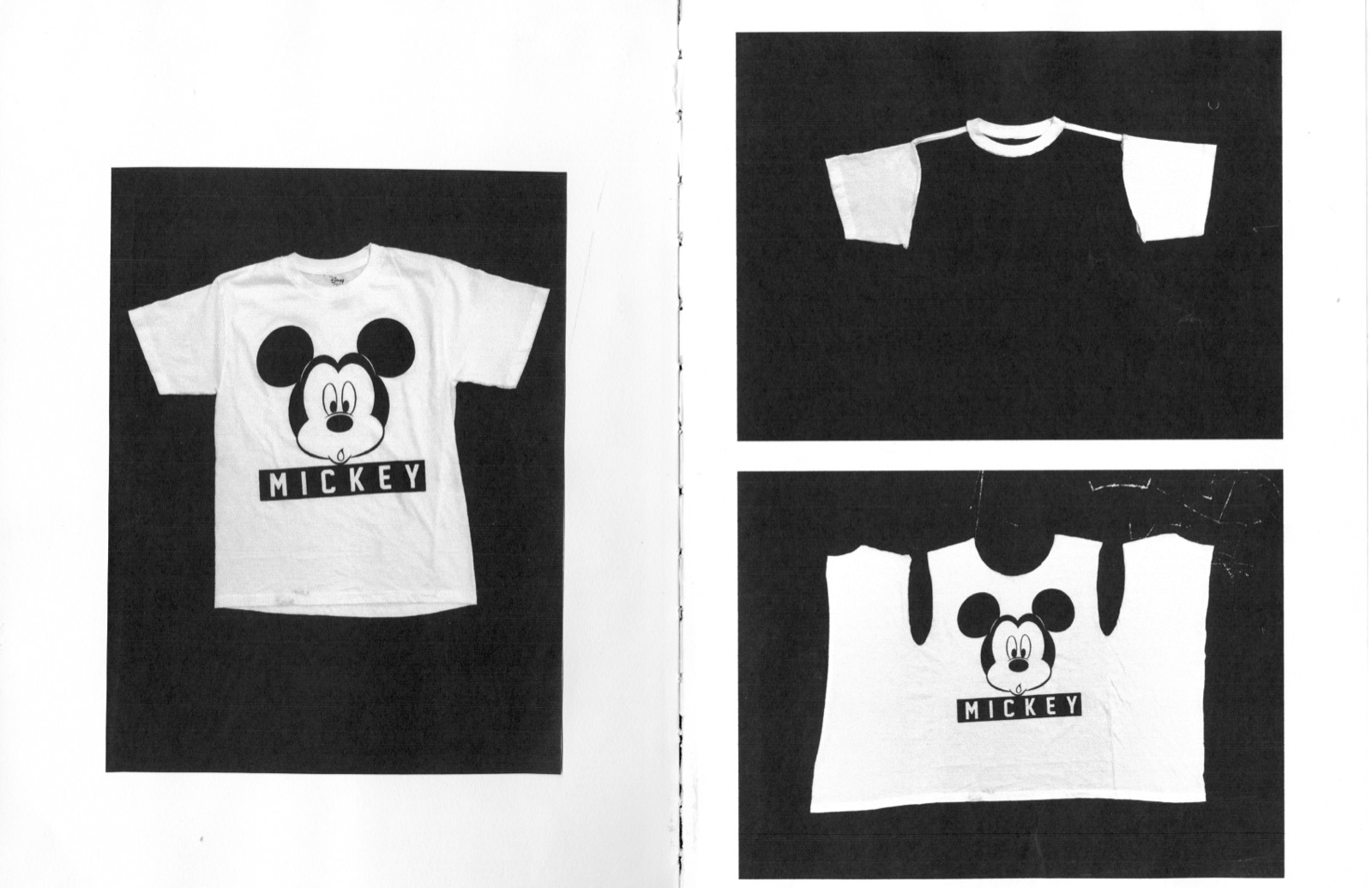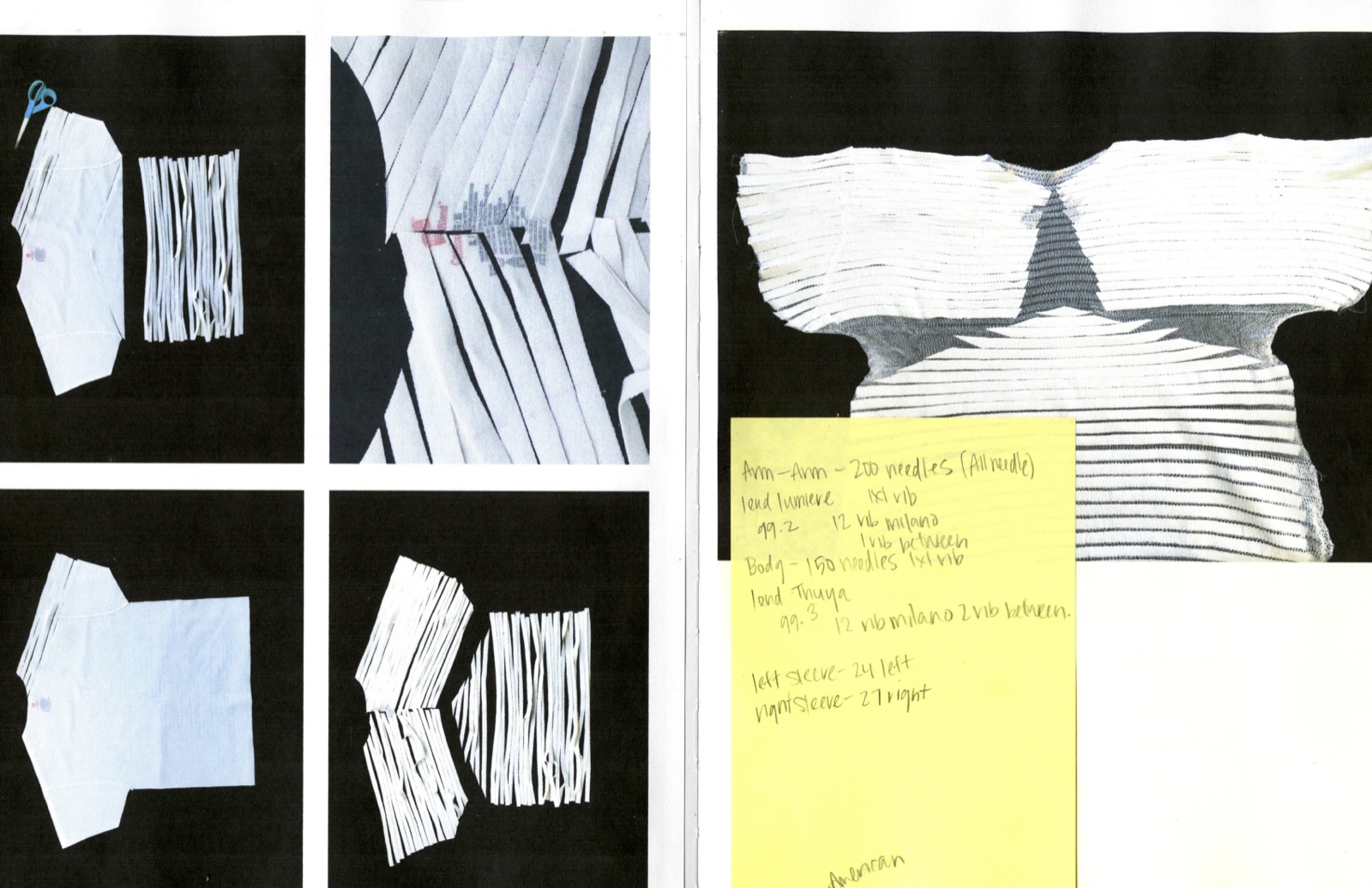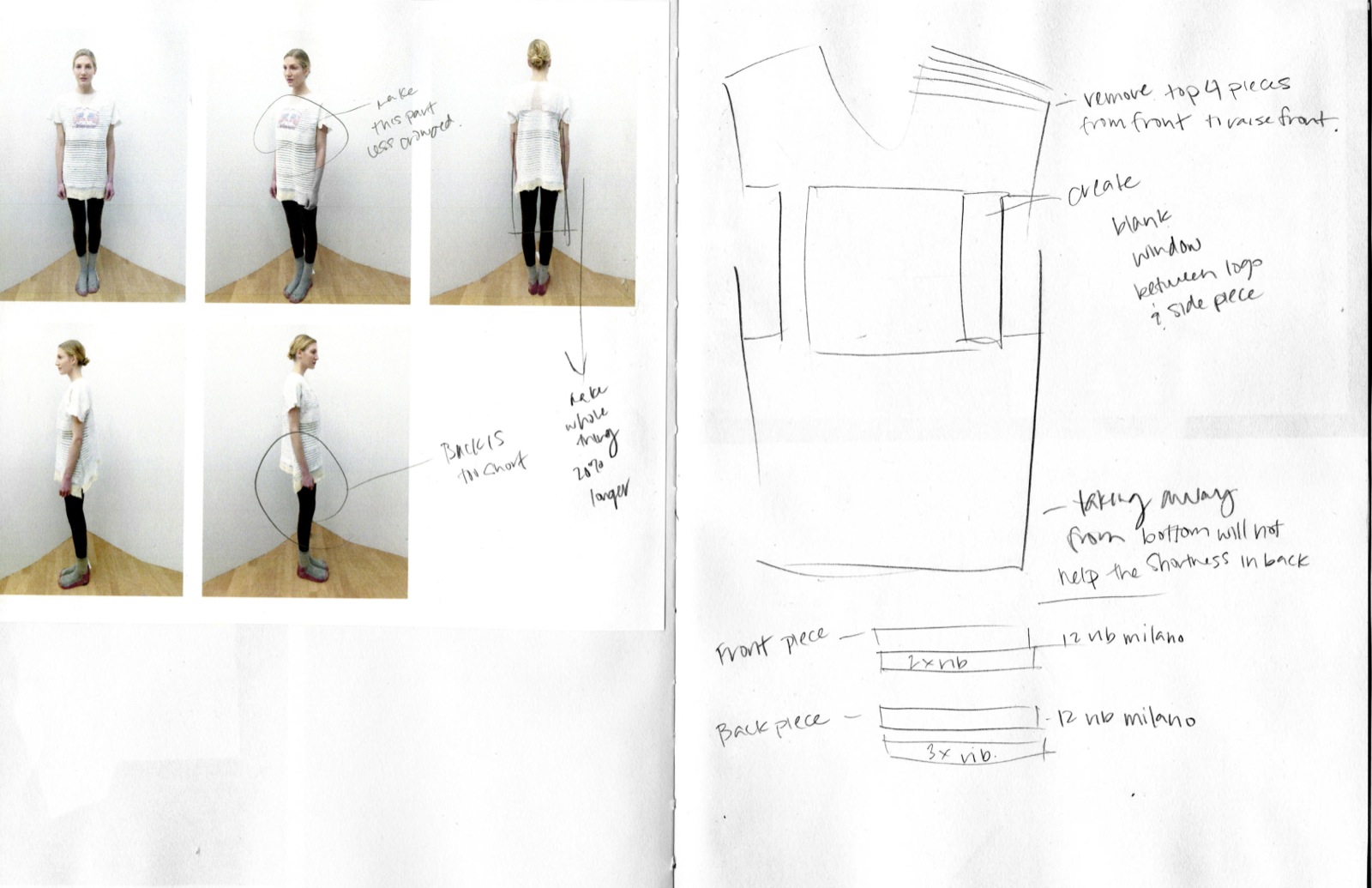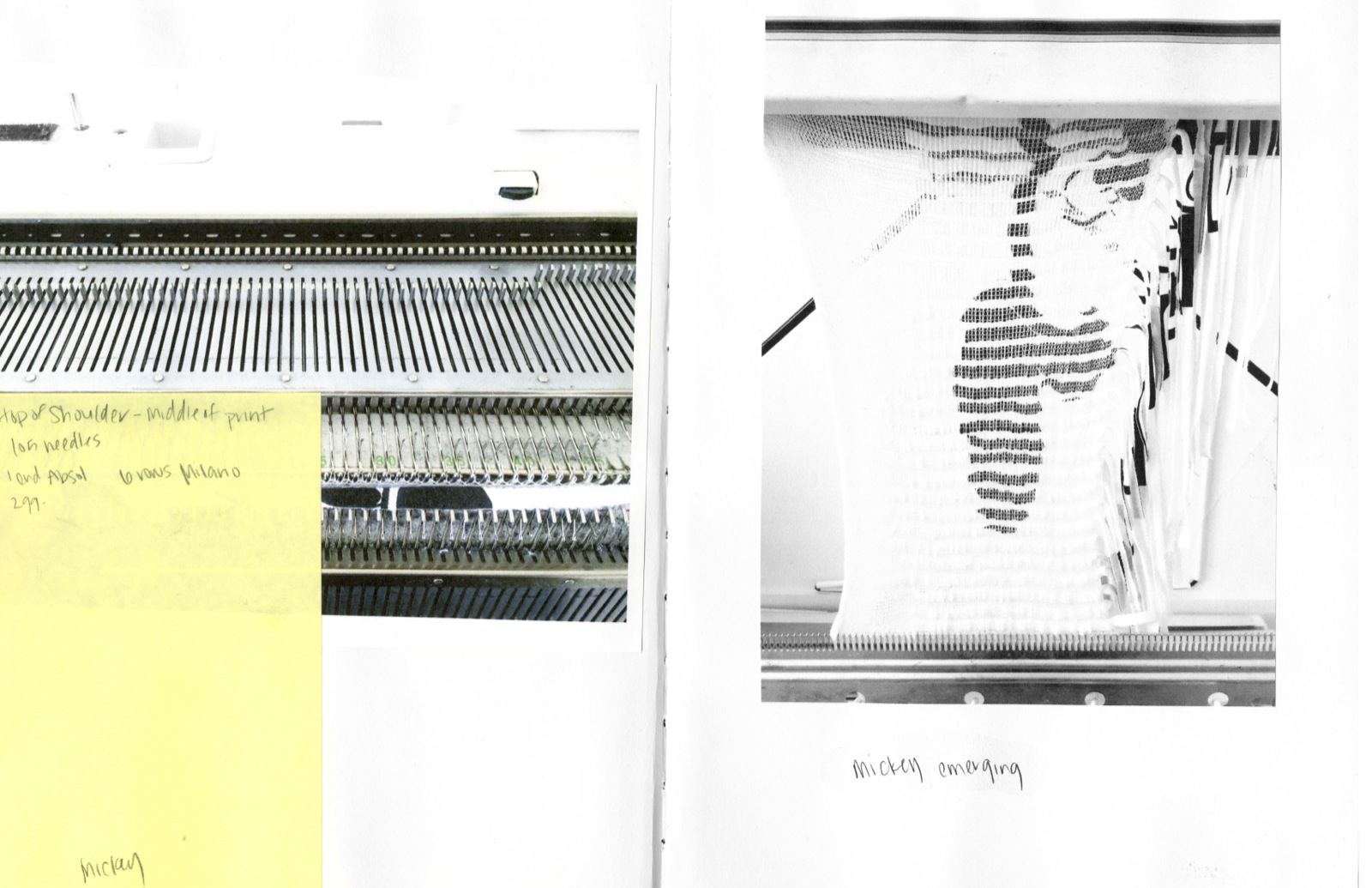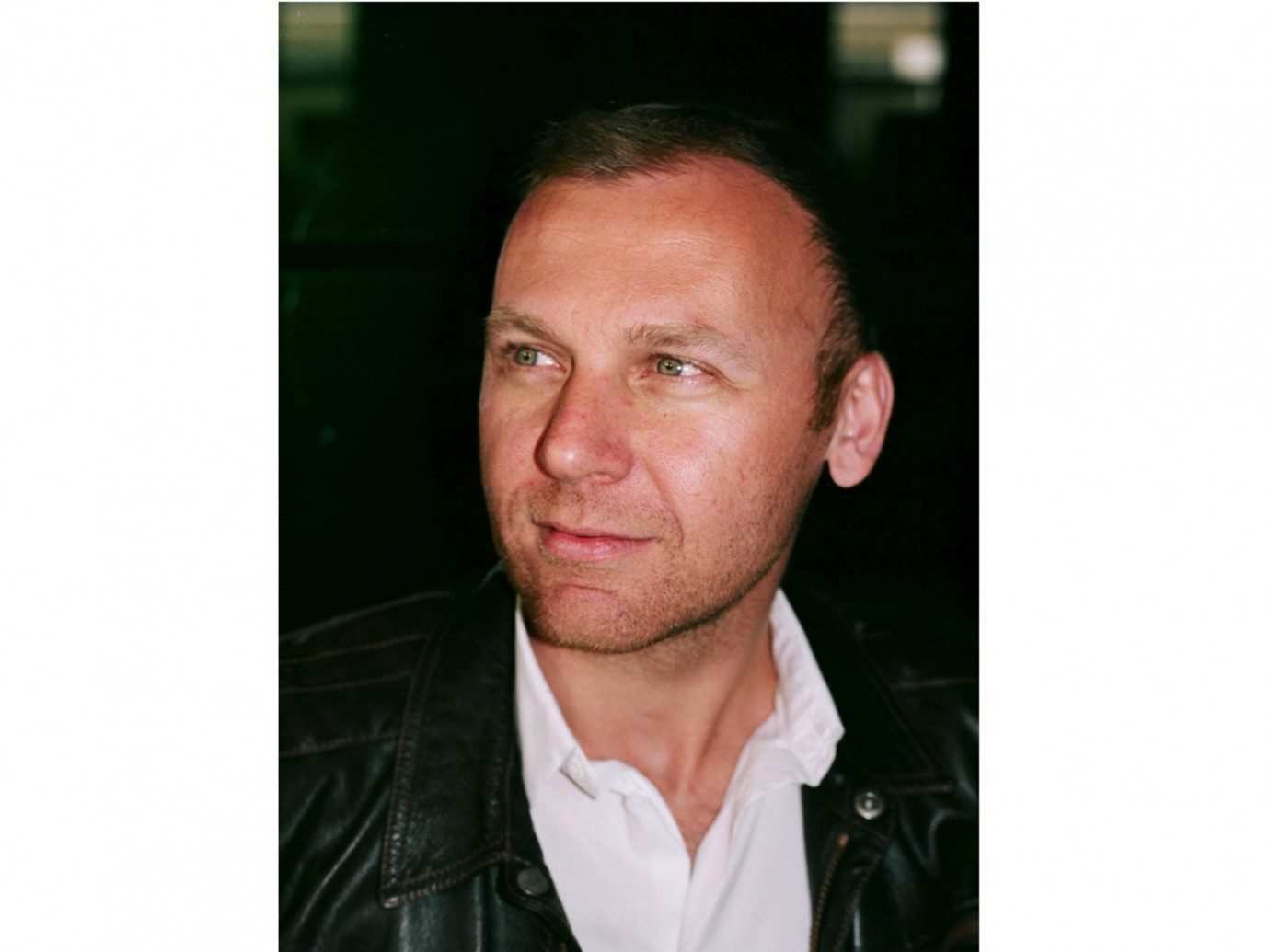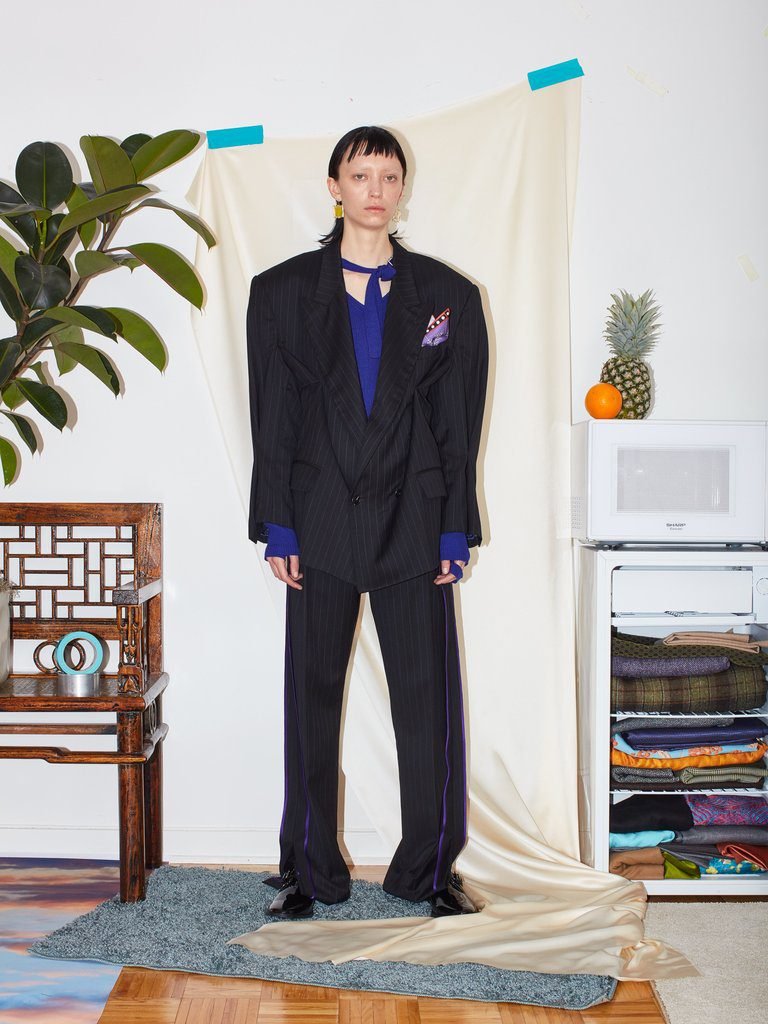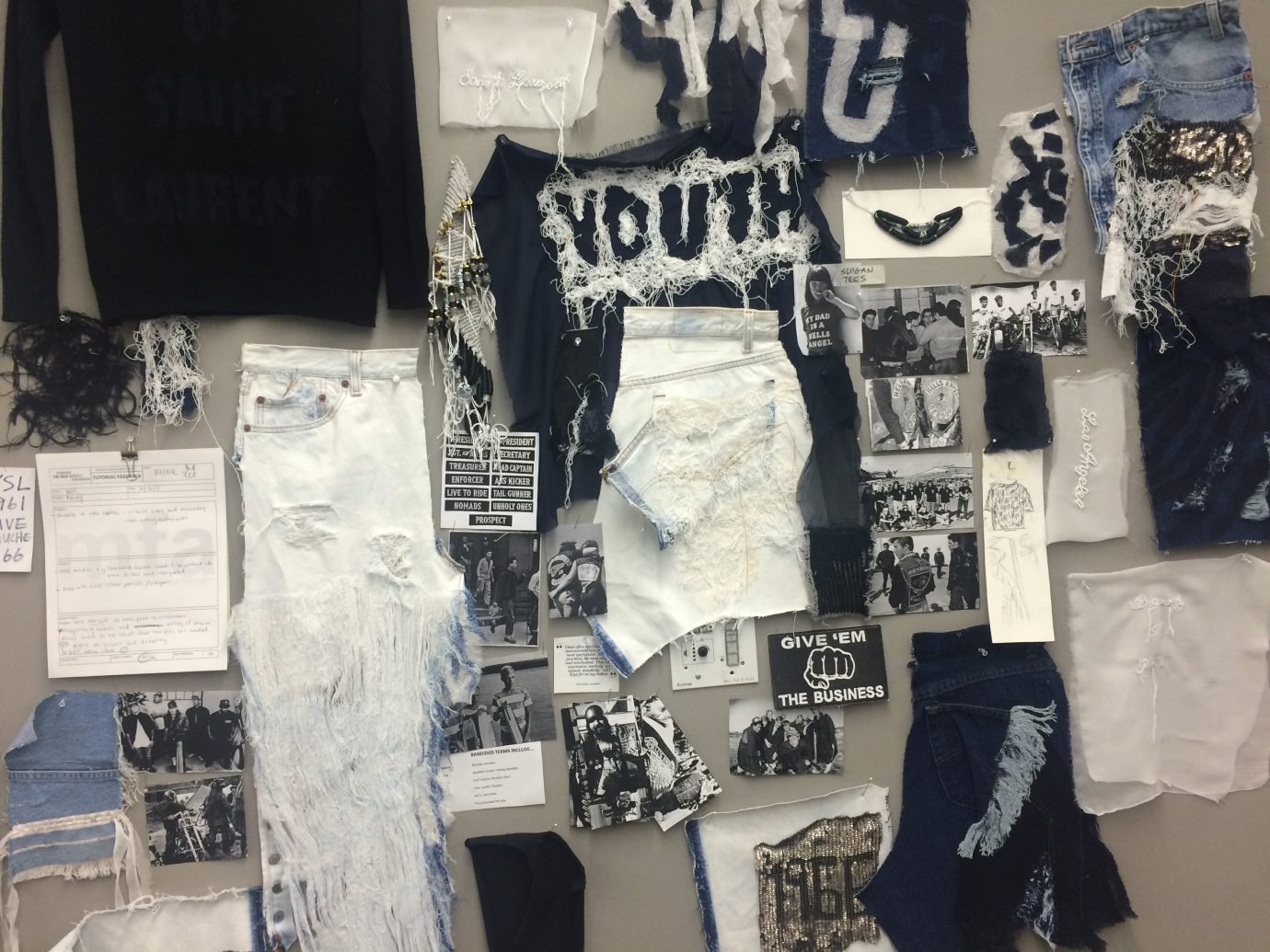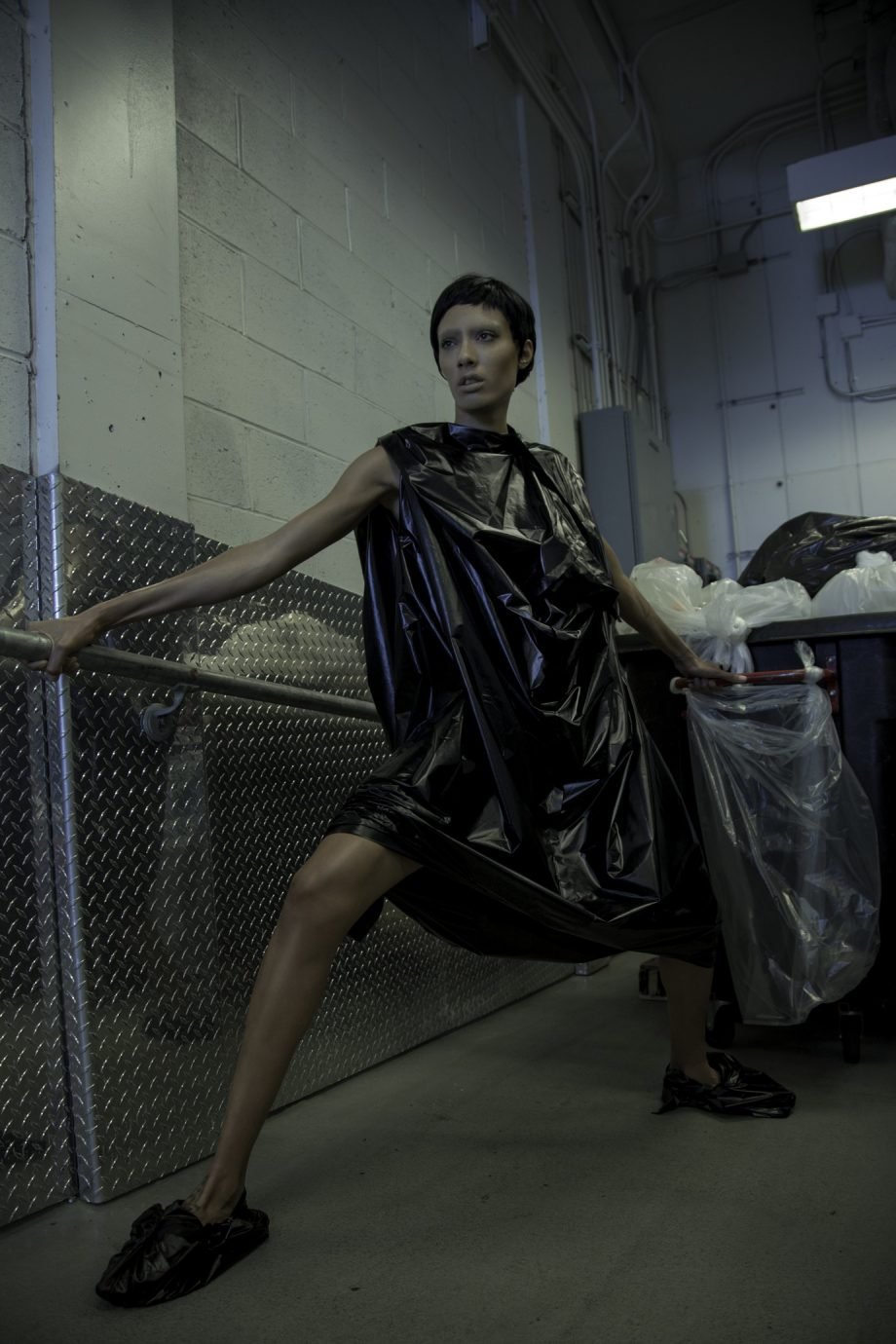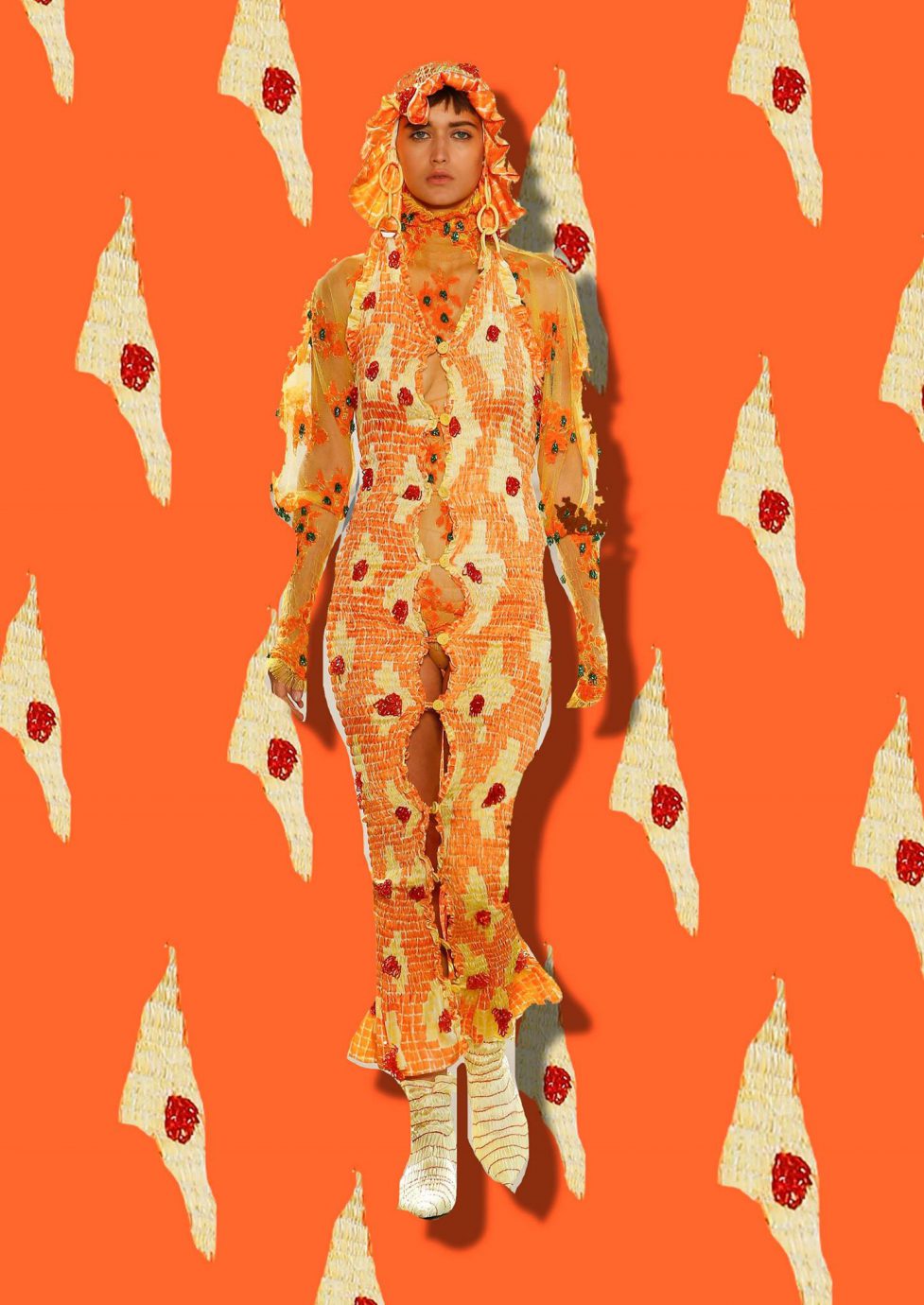“ON ONE HAND I GREW UP WITH MICKEY MOUSE AND MCDONALDS – ON THE OTHER HAND I KNOW THEY TRADE ON THAT FAMILIARITY FOR SALES. IT’S LIKE A BAD RELATIONSHIP WHERE YOU KNOW YOU’RE BEING USED BUT YOU STAY IN IT BECAUSE IT’S COMFORTABLE.”
Masters of NYC: Jessie Shroyer
Ripping up and restitching emblems of popular culture, Jessie Shroyer offers a redefinition of 'American identity'.
For Jessie Shroyer, deeply considering the body’s movements became a catalyst to pursue fashion as a medium of self-expression. Originally a professional dancer, Jessie studied philosophy in order to have a chance to sit still, and detach the focus from her body; placing it on the mind instead. “In philosophy you’re taught to break down thoughts until you’re left with pure fundamentals,” she reflects. “And when I broke down my own thoughts I realized I wasn’t passionate about the physical act of dancing – I liked dancing because it gave me the opportunity to interpret characters and ideas non-verbally. “ After religiously going to clubs for a period of time, observing how people dressed resulted in a series of epiphanies that led to her newfound obsession: “the idea of identity and representing a character through wardrobe.” To Jessie, the clothes people wore when they went out were the same as the costumes she wore when she danced – people were telling their own stories through dress. “Everything sort of clicked,” she says. Her reason for going to Parsons was not quite the common interest in garments… “I didn’t want to study fashion because I was fascinated by making clothes. I wanted to study fashion because I had something to say, and Parsons wanted to hear my voice.” And so it was heard.
“A VERY WISE PERSON ONCE TOLD ME THAT YOU WOULDN’T SOLVE THE WORLD’S PROBLEMS BY MAKING CLOTHING OUT OF ORGANIC COTTON.”
Being the only American in the MFA Fashion Design and Society program was the starting point of her thesis collection. It enabled her to see her own culture through the eyes of others – coming to NYC from all over the world – and made her question her own identity as ‘American’. Jessie ended up asking friends and family to help her develop an ‘American’ identity through clothing, by giving her one garment. The only parameter set, was that they couldn’t wish for the article of clothing to be returned to them. What did she receive? T-shirts with Mickey Mouse and Coca Cola on them, alongside raw materials for the collection.
“I’m very interested by the way people communicate their identity through the way they dress,” Jessie explains. “T-shirts are ubiquitous and American brands love to splash their logos all over t-shirts. I have a complicated relationship with American brands. On one hand I grew up with Mickey Mouse and McDonalds – on the other hand I know they trade on that familiarity for sales. It’s like a bad relationship where you know you’re being used but you stay in it because it’s comfortable.” Soon after receiving them Jessie began cutting the t-shirts, trying to work out her own thoughts, and reckons that putting them back together through the knitting process was perhaps “a sort of penance.”
Immanuel Kant makes an appearance in her manifestation of t-shirts and knitting. Revisiting her philosophy undergraduate years, Jessie saw a chance to better understand Kant’s work through hers. As she notes: “If I say the word “t-shirt,” you might get an idea of what a t-shirt could look like, but if I make a t-shirt it becomes a static object. If I say t-shirt rather than make one the t-shirt stays in the world of the ideal. So while that static t-shirt might be beautiful, the ideal t-shirt is limitless, and therefore sublime. By cutting the t-shirts, I imbued them with an idea, and opened them to the ideations of others.”
Jessie’s MFA collection may be seen as a comment on capitalism and the current ‘system’ of fashion. “A very wise person once told me that you wouldn’t solve the world’s problems by making clothing out of organic cotton,” she says. “Responsibility must be taken to make sure that the best choices are being made, corners aren’t being cut, and care is taken in every step of the process. I could point out that my garments are zero waste – made from recycled clothing and viscose, (bamboo is one of the most ethically harvested crops on the planet) but what really matters is that they are meant to be kept. If you want to be sustainable, make something that someone wants to keep, to take care of.”
Thinking further into the future, considering making clothes that last – her plans seem straightforward: “What’s next?” Jessie ponders. “I am enjoying employment, West Coast weather, and working with a team to push the boundaries of knitwear.“

